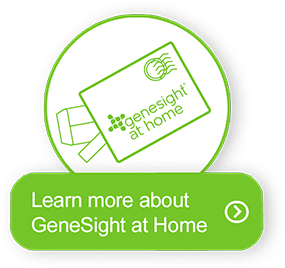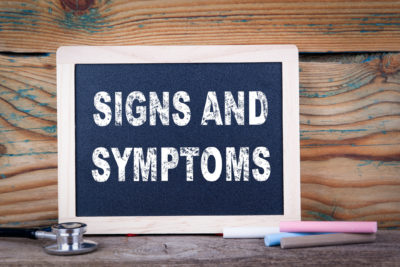“It’s not how old you are. It’s how you are, old.”
– French author Jules Renard

Mental health is important at every age. But when people experience an anxiety disorder in their later years, the condition can go unrecognized or be written off as part of the natural aging process.
“In fact, mood and anxiety disorders become less common as people age,” according to the Cleveland Clinic’s website. “But detection rates are also lower among older adults. They’re less likely to seek assistance for mental health issues.”
If you’re an older adult or are caring for an aging parent or loved one – here’s what to look for and how to help when it comes to anxiety.
How to recognize anxiety risk factors for seniors
Up to 10 to 20% of the older population may be affected by anxiety, estimates the Geriatric Mental Health Foundation (GMHF). Some may have experienced a diagnosed or undiagnosed anxiety disorder earlier in their lives, while others might begin to develop symptoms later in life.
According to Mental Health America (MHA), risk factors linked to anxiety in older adults include:
 “Chronic medical conditions (especially chronic obstructive pulmonary disease [COPD], cardiovascular disease including arrhythmias and angina, thyroid disease, and diabetes)
“Chronic medical conditions (especially chronic obstructive pulmonary disease [COPD], cardiovascular disease including arrhythmias and angina, thyroid disease, and diabetes)- Overall feelings of poor health
- Sleep disturbance
- Side effects of medications (i.e., steroids, antidepressants, stimulants, bronchodilators/inhalers, etc.)
- Alcohol or prescription medication misuse or abuse
- Physical limitations in daily activities
- Stressful life events
- Negative or difficult events in childhood
- Excessive worry or preoccupation with physical health symptoms”
For some people, the life transitions they go through as they age can lead them to develop anxiety. So much happens as we get older that can affect our mental health.
“The stresses and changes that sometimes go along with aging – poor health, memory problems, and losses – can cause an anxiety disorder,” according to GMHF. “Common fears about aging can lead to anxiety. Many older adults are afraid of falling, being unable to afford living expenses and medication, being victimized, being dependent on others, being left alone, and death.”
Signs of an anxiety disorder in older adults
The emotional and physical symptoms of anxiety can vary by person. Some may feel a particular symptom intensely – such as chest pain – and understandably mistake it for an urgent medical condition. In some cases, their symptoms aren’t a heart condition, but may be a diagnosable anxiety disorder.
“Excessive anxiety that causes distress or that interferes with daily activities is not a normal part of aging,” reads the MHA website.
 According to the GMHF, signs of an anxiety disorder may include:
According to the GMHF, signs of an anxiety disorder may include:
- “Excessive worry or fear
- Refusing to do routine activities or being overly preoccupied with routine
- Avoiding social situations
- Overly concerned about safety
- Racing heart, shallow breathing, trembling, nausea, sweating
- Poor sleep
- Muscle tension, feeling weak and shaky
- Hoarding/collecting
- Depression
- Self-medication with alcohol or other central nervous system depressants”
There are several different types of anxiety disorders. Generalized anxiety disorder and specific phobias are the most commonly occurring anxiety disorders, according to MHA. “Social phobia, obsessive-compulsive disorder, panic disorder, and post-traumatic stress disorder (PTSD) are less common,” its website notes.
Why it’s important to seek help
Only a healthcare provider can diagnose someone with an anxiety disorder. These providers can help a patient understand if other conditions may be present, such as depression, which often occurs alongside anxiety in older adults, according to the GMHF.
Diagnosis that leads to treatment is important to support a patient’s quality of life and routine. Over time, anxiety symptoms can take a toll on physical health.
“Anxiety can impact physical health in almost any way you can imagine,” says Ashley Zucker, M.D., director of psychiatry at Kaiser Permanente, Fontana, Calif., in an AARP article. “It’s very, very powerful.”
The article notes that anxiety can contribute to “sleeplessness, gastrointestinal difficulties, breathing problems, back pain and cardiovascular disease.”
How to treat anxiety for the elderly
The AARP article advises seeking a professional’s help for late life anxiety disorders over trying to “struggle through it on your own.” The article suggests that seeking professional help, therapy and medication treatment may be potential ways to keep anxiety in check.
“Seek out an expert.”
 A primary care physician is a good place to start if you have questions about anxiety for you or a loved one.
A primary care physician is a good place to start if you have questions about anxiety for you or a loved one.
“Start with your primary care physician,” Zucker advises in the AARP article. “Most people have a relationship with theirs, so that’s the most comfortable person to go to. And that person is usually well equipped to know what resources are available within your local community.”
If your primary care provider refers you to a psychiatrist or psychologist, it may be confusing on the difference. Quite simply, while both will likely offer talk therapy and other treatments, a psychiatrist can prescribe medication, while a psychologist cannot.
You can directly contact a mental health treatment center to schedule an appointment. To find a psychologist near you, you can search on Psychology Today. On this website, you can insert your zip code and refine your search results based on the specific issues you need help with. Then, you can comb through the results and read psychologists’ bios until you find one who fits your needs.
“Participate in therapy.”
“Several types of therapy can be used, but the most common is cognitive behavioral therapy (CBT),” according to Dr. Zucker. “It teaches you how to manage what’s here — not get rid of it or ignore it but help yourself work through it.”
“Be informed about medication.”
According to the GMHF:
“Medication must be prescribed by physicians, often psychiatrists or geriatric psychiatrists, who can also offer therapy or work as a team with psychologists, social workers, or counselors who provide therapy.
The main medications used for anxiety disorders are antidepressants, anti-anxiety drugs, and beta-blockers, which control some of the physical symptoms.”
Certain tests may inform a healthcare provider about how a patient’s genes may impact their outcomes to certain medications, such those used to treat anxiety, depression, ADHD and other psychiatric conditions. The GeneSight® test is one such test, and it must be ordered by a clinician who prescribes medication.
The AARP article also advises older adults with anxiety consider other ways to keep symptoms at bay – to avoid isolation, engage in physical exercise, consider pet therapy and do breathing exercises.
Asking “How are you?”
No two people are the same, and signs of anxiety can differ from person to person.
“So it isn’t possible to pinpoint normal mental health levels and behaviors that apply to all or even most people,” advises the Cleveland Clinic website. “Family members, friends and caregivers should take note when behaviors and attitudes change.”
Checking in often with aging loved ones to see how they really are – and providing support and resources when needed – can have a great impact on quality of life and physical health.
For more information about seniors and mental health, please visit:
https://genesight.com/blog/patient/truth-about-anxiety-and-aging/
https://genesight.com/blog/patient/how-to-recognize-depression-symptoms-in-seniors/
https://genesight.com/blog/patient/understanding-depression-and-anxiety/
Our articles are for informational purposes only and are reviewed by our Medical Information team, which includes PharmDs, MDs, and PhDs. Do not make any changes to your current medications or dosing without consulting your healthcare provider.
The GeneSight test must be ordered by and used only in consultation with a healthcare provider who can prescribe medications. As with all genetic tests, the GeneSight test results have limitations and do not constitute medical advice. The test results are designed to be just one part of a larger, complete patient assessment, which would include proper diagnosis and consideration of your medical history, other medications you may be taking, your family history, and other factors.
If you are a healthcare provider and interested in learning more about the GeneSight test, please contact us at 855.891.9415. If you are a patient, please talk with your doctor to see if the GeneSight test may be helpful.






